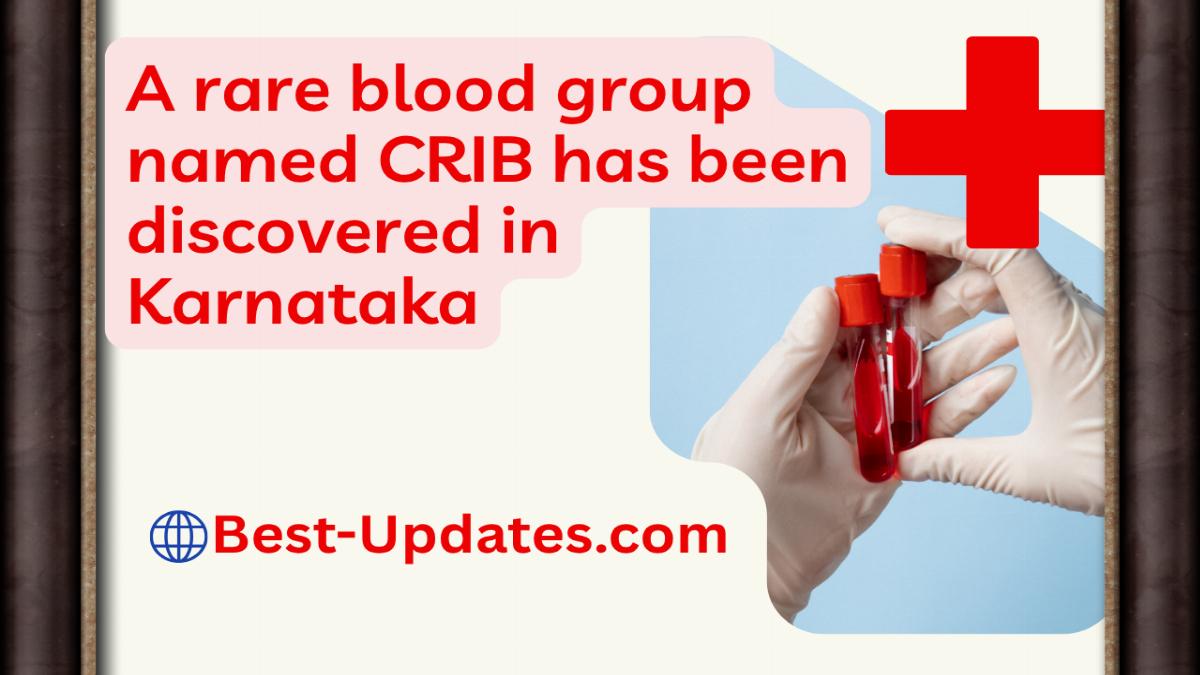CRIB Blood Group: India Identifies World's First New Blood Type in Karnataka Woman
A Historic Milestone in Transfusion Medicine from India
The Medical Mystery: An Unmatched Blood Case
The discovery was initiated when the woman, admitted for cardiac surgery, was found to be O Rh-positive, yet no available O-positive blood units matched her type. This unexpected reaction led experts to refer the case to the Advanced Immunohematology Reference Laboratory at Rotary Bangalore TTK Blood Centre.
Dr. Ankit Mathur, the lead scientist on the case, shared that the woman's blood was panreactive, showing incompatibility with all known samples. Even after testing 20 family members, no compatible donor was found. Fortunately, doctors managed her surgery without transfusion using
Global Relevance of CRIB Blood Type
The CRIB blood group is part of the Indian Rare Antigen (INRA) system, which was formally recognised by ISBT in 2022. Unlike common blood types like A, B, AB, or O, the CRIB group lacks a high-prevalence antigen—making compatible transfusions nearly impossible unless the donor is also CRIB-negative.
This blood group is also significant for fetal-maternal medicine, especially in preventing Hemolytic Disease of the Fetus and Newborn (HDFN). Early identification of such rare blood types could save lives and improve prenatal care outcomes.
advanced medical planning.
CRIB Blood Group: What It Means
After ten months of molecular testing at the International Blood Group Reference Laboratory (IBGRL) in the UK, scientists confirmed the presence of a completely novel blood group antigen. The blood type was officially named CRIB, derived from:
-
CR = Cromer Blood Group System
-
IB = India, Bangalore
This rare antigen was announced at the 35th Regional Congress of the International Society of Blood Transfusion (ISBT) held in Milan, Italy in June 2025.
Global Relevance of CRIB Blood Type
The CRIB blood group is part of the Indian Rare Antigen (INRA) system, which was formally recognised by ISBT in 2022. Unlike common blood types like A, B, AB, or O, the CRIB group lacks a high-prevalence antigen—making compatible transfusions nearly impossible unless the donor is also CRIB-negative.
This blood group is also significant for fetal-maternal medicine, especially in preventing Hemolytic Disease of the Fetus and Newborn (HDFN). Early identification of such rare blood types could save lives and improve prenatal care outcomes.
India’s Role in Rare Blood Discoveries
India’s diverse genetic pool has played a vital role in discovering rare blood types. The INRA system itself was discovered in an Indian woman in 2017. The discovery of CRIB strengthens India’s standing in global hematology.
To enhance rare blood support, the Rotary Bangalore TTK Blood Centre has collaborated with:
-
Karnataka State Blood Transfusion Council
-
ICMR’s IIH Centre (Mumbai)
-
ISBT
to create a Rare Donor Registry and support future cases of rare blood needs like D- -, Rh null, In b negative, and now CRIB.
Future Research and Support
Medical experts are now developing CRIB-specific antibody panels and improved screening tools to identify potential carriers. These steps are crucial for early diagnosis, safe transfusions, and better maternal care.
This remarkable case is a reminder that even today, undiscovered aspects of human biology can surprise and challenge our understanding of medicine.
